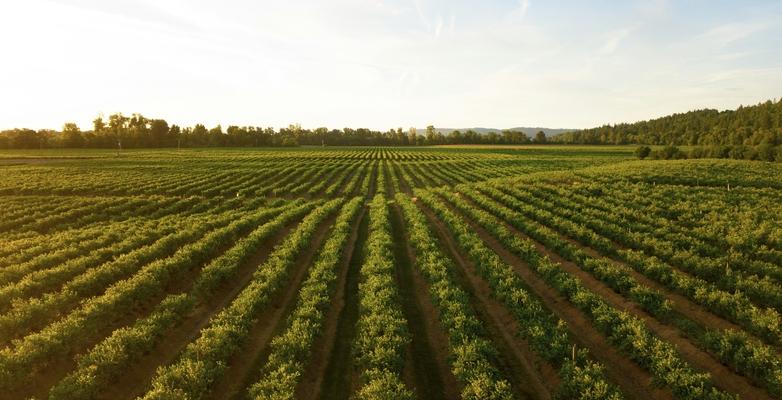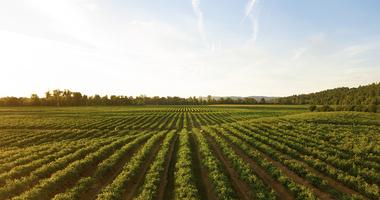
Climate Reality US Chapters Are Fighting for a Climate-Smart Farm Bill
Expanding regenerative agriculture practices is one way to help reduce excess CO2 and reverse global warming, saving the planet for generations to come.
3 min read
By Donald Viecelli, Climate Reality Chicago Metro Chapter
The Climate Reality Regenerative Agriculture Coalition (RAC) got its start in the middle of 2022 to focus on advocacy efforts for the 2023 Farm Bill, which was supposed to be voted into law by the end of September 2023. The bill has since been delayed, due in large part to divides among members of the US House of Representatives and Senate agriculture committees.
The points of contention revolve around climate mitigation requirements (called “guardrails”) that were part of the Inflation Reduction Act (IRA) signed into law in August 2022. Legislators remain in stark disagreement over the inclusion of climate guardrails in the new 2024 Farm Bill.
The RAC is composed of over 190 advocates from 30-plus Climate Reality chapters across the US, supporting regenerative agriculture (RA) practices and policies that would help reduce greenhouse gas (GHG) emissions in the agriculture industry, benefit farmers and ranchers, and improve soil health while promoting carbon sequestration capabilities. The RAC developed six policy recommendations that supported these initiatives and met with many Congressional staff members during 2023 to garner support for the Farm Bill and IRA.
It all began with the establishment of the regenerative agriculture campaign committee as part of the Chicago Metro chapter. At that time, RA practices and methods were not well-known to the public. It was before nature-based solutions became an area of focus for Climate Reality chapters.
The primary reason members of the Chicago Metro chapter decided to start the campaign was because of the potential of regenerative agricultural practices to draw down carbon dioxide (CO2) from the atmosphere and sequester carbon in the ground through photosynthesis. This is a revolutionary concept that demands attention if we are to meet the Paris Agreement goal of limiting warming to 1.5 degrees C to avoid the worst impacts of the climate crisis.
RA can definitely be a complex process. The Chicago Metro chapter RA committee spent six months learning about how RA works and why it’s needed. We continue to research and study the potential of RA to mitigate climate change using this holistic, regenerative land management approach. This includes practices and methods like no-tilling and planting cover crops (e.g. winter rye) to improve soil health and reduce erosion. This is how nature-based solutions can create healthy soil that feeds the plants and reduce the need for chemical fertilizers that end up polluting our environment.
In the middle of 2022, the Denver Metro Colorado chapter joined the Chicago Metro chapter in starting the RA Coalition to broaden and further our impact in advocating for climate mitigation provisions in the Farm Bill. The entire team is passionate about this. We are committed to advocating for the benefits of RA within our chapters and to the broader public.
To accomplish our goals, the team builds relationships with other RA farm organizations to support each other’s lobby efforts on the 2024 Farm Bill and IRA. We schedule meetings with our legislators to discuss our policy recommendations and gather support. We raise awareness of RA benefits by inviting experts to speak at chapter meetings, publishing Climate Action Now alerts, developing letter writing campaigns, and doing presentations to inform everyone about RA’s potential and what people can do to support these practices.
In 2024, we started a farmer and rancher outreach campaign that included a survey questionnaire to ask participants to tell their RA success stories for use in podcast videos and social media and in meetings with members of Congress. This campaign is ongoing, and we look forward to spreading the word about RA benefits and the potential to mitigate climate change.
Most people don’t realize that atmospheric CO2 levels and global temperatures may still be dangerously high even after getting to net-zero emissions. Expanding RA practices is one way to help reduce the excess CO2 and reverse global warming, saving the planet for generations to come.
I’m really proud of everyone on the RAC and Chicago Metro chapter teams. Each member has developed subject matter expertise on RA practices, allowing us to advocate for responsible Farm Bill legislation. We will continue to lobby Congress to add climate-smart RA policies to the 2024 Farm Bill and other agriculture-related legislation.
Anyone interested in learning more about the RAC and supporting its efforts can visit the Chicago Metro chapter team’s RA web page at https://climaterealitychicago.com/regen-ag/.
We believe real change comes from the ground up. We know that a small-but-committed critical mass of activists can not only transform society, but change the world. Sign up for our email list today to discover how you can create change in your community.




